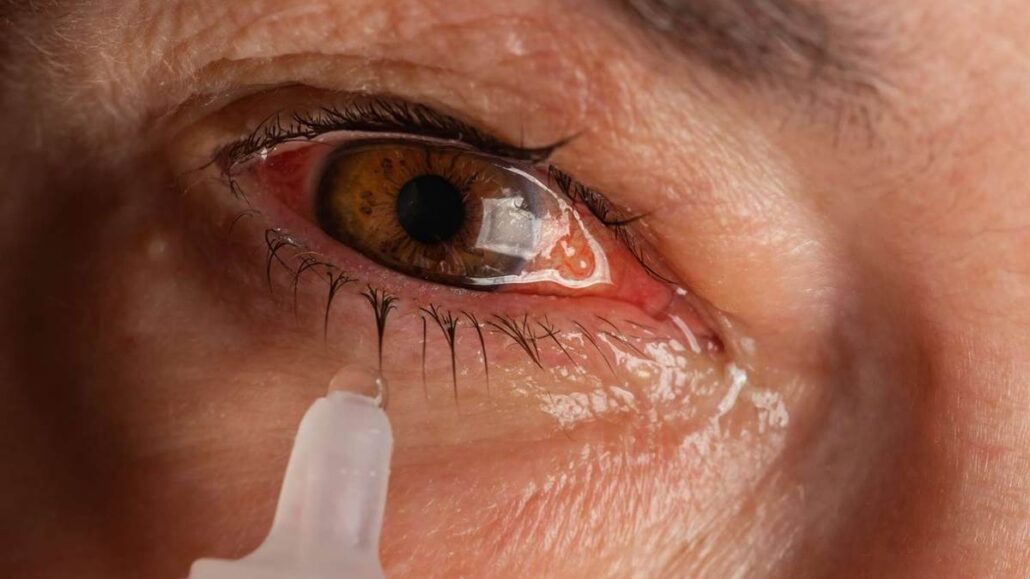
Hospitals in different parts of Jammu division are witnessing dozens of patients complaining of irritation, redness, swelling, and itching in the eyes.
Doctors told the news agency KNO that more cases of conjunctivitis and eye flu are on the rise, but there is no need to worry as it usually resolves in around one to two weeks for those affected. However, people need to take precautions.
They said it is a “self-limiting infection,” and each individual’s immunity will have a role to play in the course of the disease.
“The monsoon’s humid and damp conditions provide an ideal breeding ground for the viruses or bacteria responsible for these infections to spread rapidly,” they said.
“This flu can infect any person of any age group, and to stop the spread of the infection, touching of eyes should be avoided, especially with unwashed hands,” they added.
They said that symptoms of this flu are watery discharge in the eyes, redness, congestion, photophobia, and hemorrhages in the superficial layer of the eye.
Dr Sandeep, an eye specialist from Jammu, said that these cases have been reported in four to five districts of Jammu for the last one week.
He said that eye flu is also one of the common problems experienced by people during monsoons; however, this year, the increased moisture in the air may be one of the main reasons behind it.
He emphasized that one must maintain good hygiene, which includes washing hands and avoiding touching eyes with bare or unwashed hands. Additionally, individuals should avoid sharing personal belongings like towels, lenses, or glasses.
Anyone experiencing any symptoms must visit the nearest hospitals and take precautions to prevent its spread to others, he said.
Doctors said that in most cases, eye flu is not dangerous and can be easily treated with proper care. There are over-the-counter eye drops and anti-bacterial medications available, which can be taken with appropriate dosage for eye flu treatment.
However, if left untreated, severe cases of bacterial conjunctivitis may lead to complications that can affect vision, they said. (KNO)




